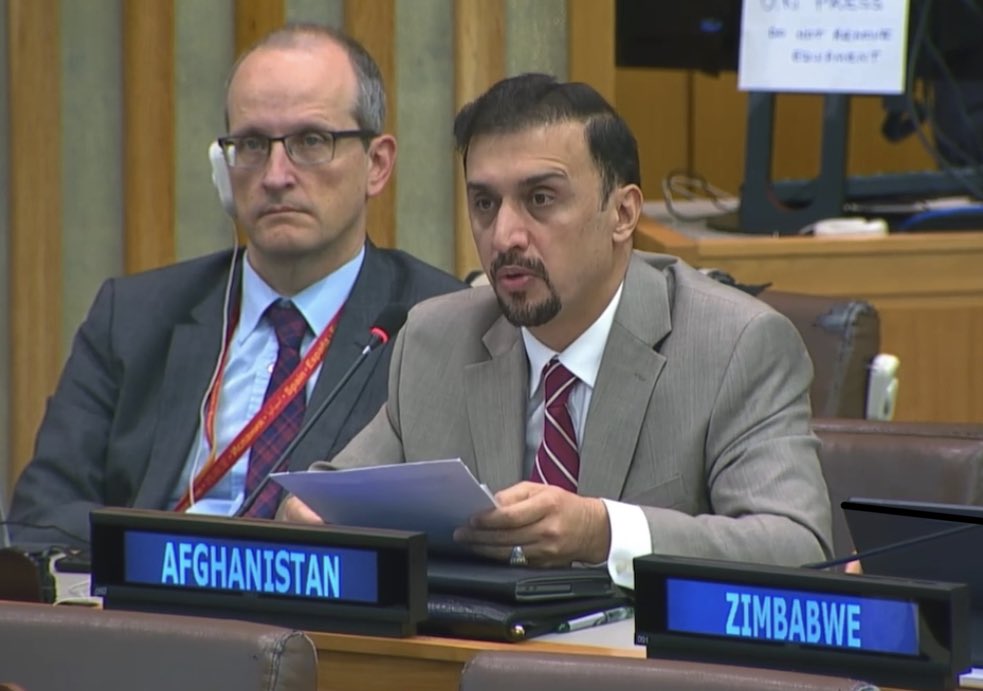Naseer Ahmad Faiq, charge d’affaires of Afghanistan’s mission to the United Nations, on Wednesday voiced profound apprehension about the human rights situation in Afghanistan since the Taliban takeover, describing it as a complex, multifaceted, and deeply troubling challenge.
Speaking before the Human Affairs Committee of the United Nations General Assembly, Faiq highlighted the Taliban’s imposition of gender apartheid, systematic discrimination, and gender-based restrictions on women, particularly concerning access to the justice system for protection against violence.
“It is with deep concern that we address the current human rights situation in Afghanistan as the country faces complex and multifaceted, social, economic, political and security challenges,” he said.
Faiq added: “Of utmost concern is the impact of women’s and girls’ rights and fundamental freedoms. The Taliban regime imposed systematic discrimination and strict gender-based restrictions.”
He said that these actions by the Taliban “erased the hard-fought gains made by Afghan women over the past two decades and undermined their ability to realize their full potential and contribute to economic development.”
Meanwhile, women’s rights activists, advocating against gender apartheid, observed the exclusion of women from key political, economic, and social arenas.
“The deliberate exclusion of women from social, political, economic, and civil processes is a clear manifestation of gender apartheid and gender discrimination. While this issue can be addressed in international forums, we continue to witness the deteriorating status of Afghan women,” remarked Mawluda Tawana, a women’s rights activist.
The lack of full access to the justice system, especially for women facing violence or forced marriages, represents another pressing challenge highlighted by the United Nations Human Affairs Committee.
“We urge the global community, international organizations, and human rights advocates to heed the Afghan representative’s plea and take concrete, meaningful actions to reduce violence, and human rights violations, and acknowledge the prevalence of gender apartheid,” urged Kelp… Christina Azizi, a women’s rights activist.
Despite more than two years of Taliban rule, there has been no easing of restrictions on women; in fact, the number of limitations has increased, leading to a diminished presence of women in Afghan society.
International human rights organizations and Afghan women and girls have jointly called on the international community to take practical steps to counter the Taliban’s constraints on women, rather than simply expressing concern and sympathy.





